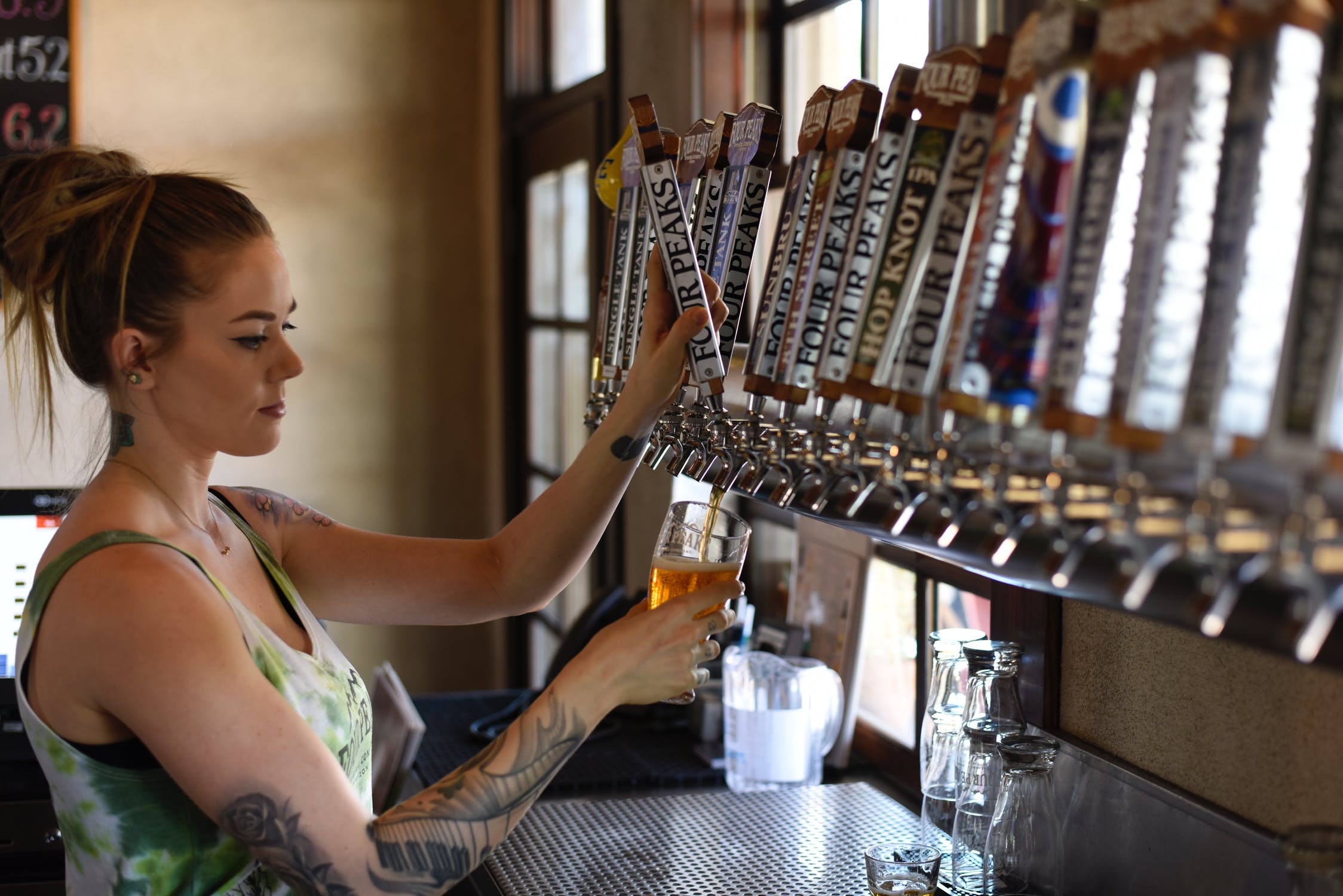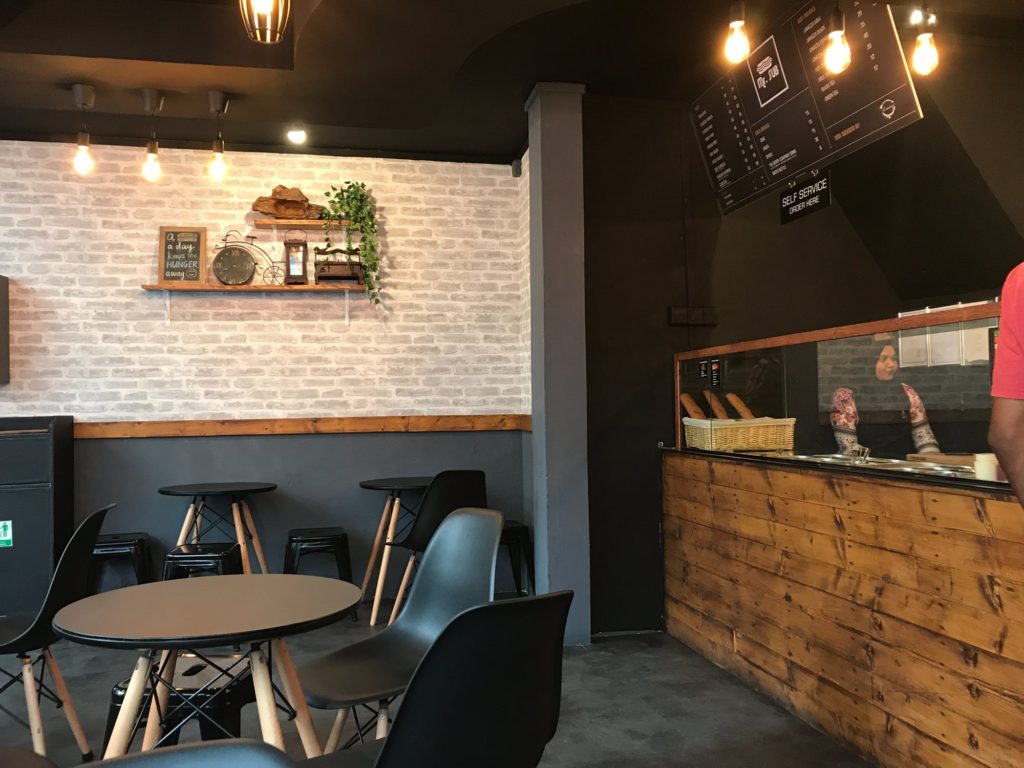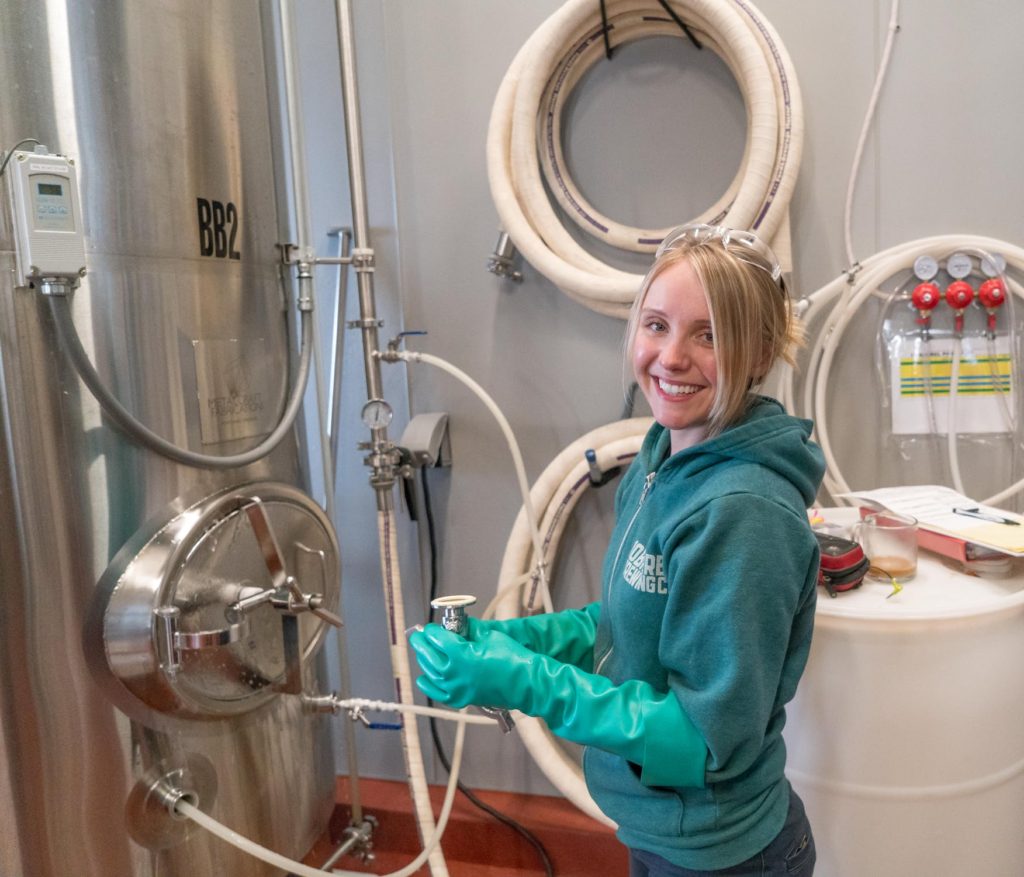
fciwomenswrestling.com femcompetitor.com, fcielitecompetitor.com, pexels.com elevate
March 23, 2020,
As little as six months ago, virtually no one, except in the scientific community saw this coming.
The US economy was rolling along, we were in the heart of the NFL, College football season and the future looked so bright.
Then the disturbing news about this odd virus was emanating from China and boy did the story and virus spread from there.
Now it appears the whole world is affected and infected and the worst economic pressure is being applied to small businesses.

As reported March 23, 2020 at the global news and information source cnbc.com, “Tech-focused lenders are lobbying to be part of a government stimulus plan for businesses hurting from the coronavirus slowdown. Financial Innovation Now — an industry group representing Square, PayPal, Intuit, Stripe and other non-bank finance companies — sent a letter to Congress on Friday asking that their members be included in any emergency U.S. government funding.”
We hope the letter is well-received. In times like these, citizens are looking to their government for a swift and effective response.
The team at marketwatch.com adds, “With major cities locked down, all travel canceled, and the global supply chain disrupted, the U.S. economy is likely to experience the largest contraction since the Great Depression. The policy question, then, is not whether the government should intervene, but how.
Precisely because the policy response to the pandemic will be massive, it is important that the government does not just throw a bunch of money at the problem. Rather it must focus on the most important needs: stopping the pandemic and ensuring that businesses survive the lock down phase.”
Good points made.
We can look to China to see how small businesses are doing there after the pandemic seems to have peaked.

Reported on by marketplace.org, they educated, “According to Chinese officials, central Hubei province, the epicenter of the COVID-19 virus outbreak, is still getting its economy back on track. About half of big companies remain shut down. Outside of Hubei, 90% of large firms are back at work. However, small and medium-sized companies are still struggling: only 60% are open.”
Hopefully that is not a glimpse of what is to come in America.
The United States Small Business Administration is trying to enact a plan to achieve better results.

At sba.gov they announce, “The U.S. Small Business Administration is offering designated states and territories low-interest federal disaster loans for working capital to small businesses suffering substantial economic injury as a result of the Coronavirus (COVID-19). Upon a request received from a state’s or territory’s Governor, SBA will issue under its own authority, as provided by the Coronavirus Preparedness and Response Supplemental Appropriations Act that was recently signed by the President, an Economic Injury Disaster Loan declaration.
Any such Economic Injury Disaster Loan assistance declaration issued by the SBA makes loans available statewide to small businesses and private, non-profit organizations to help alleviate economic injury caused by the Coronavirus (COVID-19). This will apply to current and future disaster assistance declarations related to Coronavirus.
SBA’s Office of Disaster Assistance will coordinate with the state’s or territory’s Governor to submit the request for Economic Injury Disaster Loan assistance.
Once a declaration is made, the information on the application process for Economic Injury Disaster Loan assistance will be made available to affected small businesses within the state.
SBA’s Economic Injury Disaster Loans offer up to $2 million in assistance and can provide vital economic support to small businesses to help overcome the temporary loss of revenue they are experiencing.
These loans may be used to pay fixed debts, payroll, accounts payable and other bills that can’t be paid because of the disaster’s impact. The interest rate is 3.75% for small businesses. The interest rate for non-profits is 2.75%.
SBA offers loans with long-term repayments in order to keep payments affordable, up to a maximum of 30 years. Terms are determined on a case-by-case basis, based upon each borrower’s ability to repay.
SBA’s Economic Injury Disaster Loans are just one piece of the expanded focus of the federal government’s coordinated response, and the SBA is strongly committed to providing the most effective and customer-focused response possible.
For questions, please contact the SBA disaster assistance customer service center at 1-800-659-2955 (TTY: 1-800-877-8339) or e-mail disastercustomerservice@sba.gov.”
That is the information from a national organization and now we can view what a local organization, the Mayor’s Office in San Francisco is doing to soften the economic blow of small businesses in the city by the bay.
San Francisco Announces Measures to Support Small Businesses in Response to COVID-19
Deferral of business taxes and licensing fees, launch of economic relief fund, and other support efforts aim to help struggling small businesses and workers

San Francisco, CA — Mayor London N. Breed today announced measures to support small businesses in San Francisco that are experiencing a slowdown in business as a result of COVID‑19, the disease caused by novel coronavirus. She was joined by Senator Scott Wiener, Treasurer José Cisneros, City Controller Ben Rosenfield, Assessor-Recorder Carmen Chu, Board President Norman Yee, Supervisor Aaron Peskin, and the Office of Economic and Workforce Development for the announcement at a small business in Chinatown.
These efforts include deferring business taxes and licensing fees, launching a relief fund for impacted businesses, supporting nonprofits funded by the City so workers don’t lose their incomes, and working with partners in the philanthropic and private sector, as well as advocating for state and federal support for workers and businesses. The City will also be launching a website that will serve as a one-stop shop for all resources, contacts, and updates for small businesses: www.oewd.org/covid19
“It’s important that people follow the public health recommendations to disrupt the spread of COVID-19 in our communities,” said Mayor Breed. “We know these recommendations are disruptive to the lives of everyone in our City, but they will help slow the spread of this disease. Unfortunately, that means that many of our small businesses are feeling the economic impact of people staying home and not shopping or going out to eat. That’s why we are working to provide relief and support for our small businesses and the workers who rely on them for their livelihood. These are just the first steps of what we are doing for our small business community.”
The measures Mayor Breed announced today are the following:
Defer Business Taxes for Small Businesses
In order to provide immediate cash-flow assistance to small businesses, Mayor Breed will be working with Treasurer Cisneros to notify small businesses that the next round of quarterly businesses taxes can be deferred. Businesses are required to pre-pay their first quarter business taxes for current tax year by April 30th. This announcement will allow businesses to not pre-pay, deferring payment due to February 2021. No interest payments, fees, or fines will accrue as a result of the deferral. This benefit will be offered to business with up to $10 million in gross receipts, benefiting approximately 8,050 businesses with an average $5,400 tax payment deferral each.
Defer Business Licensing Fees
The City will provide further tax relief by delaying the City’s collection of the unified license bill, which includes but is not limited to charges to restaurants and food businesses, bars, convenience stores, many small retailers, hotels, and tour operators, from departments such as the Department of Public Health, Entertainment Commission, Fire Department, and Police Department. The initial delay will be for three months, with a further delay to be contemplated based on need. This will lead to $14 million in deferrals impacting 11,000 payees.
Provide Immediate Relief
The City will establish a fund to provide immediate relief for impacted small businesses with an initial investment of $1 million to provide up to 100 businesses with grants of $10,000 each in immediate relief. This fund will be administered by the Office of Economic and Workforce Development to businesses that show a loss of revenue and can be increased as need arises.
Guarantee Continuance of City-Funded Nonprofit Contracts
The Controller has issued guidance to our nonprofit partners that the City will continue to pay pursuant to contracts even if the nonprofit organization’s operations are affected. This will ensure nonprofit workers will not lose income due to illness or if a nonprofit is shut down or experiences service disruptions as part of the novel coronavirus response.
Seek State and Federal Support for Businesses and Workers
Mayor Breed will work with local partners to advocate for regulatory relief from both state and federal government around employment benefits, including unemployment, sick leave, disability, and other matters.
Secure Private Sector and Philanthropic Support for Small Businesses
The City will work with private sector financial partners and philanthropy to identify resources, provide credit and lending flexibility, and offer direct financial support to the maximum extent feasible.
Support for Employees and Contractors
The City is requesting that all private sector employers in San Francisco be as flexible as possible with their employees and with their small business contractors. The City will lead by example by reaching out to commercial tenants to discuss any need for rent payment deferral, including tenants at the Port, the Airport, San Francisco Municipal Transportation Agency, and others.
Create Website to Provide Information for Small Businesses
The City has created a one-stop resource for employers and employees outlining all existing resources, contacts for assistance, and to provide updates on the City’s growing response to the business community. Website: www.oewd.org/covid19
“Our response to COVID-19, while essential as a matter of public health, is creating severe economic consequences for many workers—especially services workers—and businesses,” said Senator Scott Wiener (D-San Francisco). “We must support our workers and businesses as they move through this difficult time. Many workers are losing income—or being laid off entirely—and many small businesses are at risk of closure. We need to ensure people are aware of all available state safety net resources, and we need financial supports for struggling businesses. As we combat this epidemic, we must make clear that we’re in this together and that we’ll support everyone who needs it.”
“I am proud to bring the resources of the Treasurer’s Office to bear in this critical citywide effort,” said Treasurer José Cisneros. “Our track record of strong customer service and responsiveness will help deliver the Mayor’s efforts to alleviate burdens on businesses impacted by COVID-19.”
“It’s too soon to speculate about the long-term economic impacts but we won’t downplay the immediate severity of the situation,” City Controller Ben Rosenfield. “Right now, San Francisco hotels and many small businesses are bearing the brunt of the knock-on effects from limited travel and necessary social distancing recommendations, and we should expect further fallout in other sectors. In the coming week, my office will release revised projections of current year fiscal revenues impacts.”
“At times like these, we are reminded of how interconnected we are to one another,” said Assessor-Recorder Carmen Chu. “Our small businesses and all the people they employ are hurting right now. These are our neighbors, our friends. That is why it is so important for us to come together as one City to do right by our communities by bringing forward an immediate local tax relief program.”
“We are working together as a City to ensure that those of us who are hardest hit by the economic impacts of the coronavirus, are supported,” said Board President Norman Yee. “These actions are only the first ones – we are working quickly on comprehensive solutions so that no one is left behind. We will get through this.”
“Even before coronavirus, the City has been working to help small businesses, which we all know have faced tremendous challenges,” said Supervisor Aaron Peskin. “Extraordinary times call for extraordinary measures, and we have to protect the public health and the backbone of our economy. Every elected official is coming together to support the first steps toward ensuring small businesses, their employees and families remain as stable as possible in this challenging time.”
“During this time of uncertainty, our small businesses are especially vulnerable and require immediate support to mitigate economic impacts,” said Joaquín Torres, Director of the Office of Economic and Workforce Development. “Our actions today represent our first steps to quickly address cash flow challenges as our small business community plans for the future. Our office and our partners are here to provide relief and guidance on how we as a city may support both employees and employers during this difficult time.”
“We deeply appreciate Mayor London Breed for taking fast, decisive action to protect our economy, small businesses, and working-class people during this critical time,” said Rodney Fong, President and CEO of the San Francisco Chamber of Commerce. “The directives she is putting in place today will bring immediate cash flow relief to small businesses, keeping them afloat and allowing them to provide their employees adequate hours. We are working day and night with our partners in government and the community to collectively support our small businesses and workers.”
“This is a difficult time for everyone. I am glad to see the Mayor and City are taking swift actions to address the challenges Chinatown small businesses are facing because of the impacts by the novel coronavirus,” said Kitman Chan, First Vice President, Chinese Chamber of Commerce. “We want everyone to know that Chinatown is open for business and we are ready show the world what we have to offer.”
Earlier today, the Health Officer for the City and County of San Francisco issued a Public Health Order prohibiting all non-essential large events of 1,000 or more persons. This Order builds on the City’s public health recommendations that encourage social distancing and other behaviors to slow the spread of novel coronavirus.

###
OPENING PHOTO fciwomenswrestling.com femcompetitor.com, fcielitecompetitor.com, pexels.com elevate
https://www.cnbc.com/2020/03/23/tech-lenders-push-for-a-piece-of-the-coronavirus-bailout.html
https://www.sba.gov/disaster-assistance/coronavirus-covid-19



